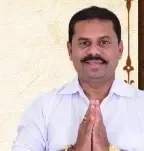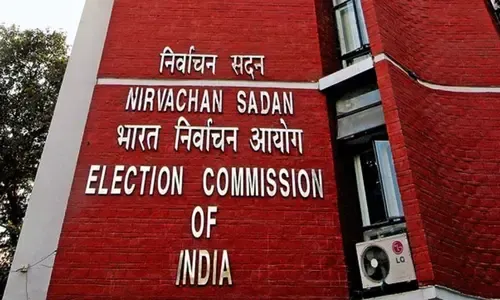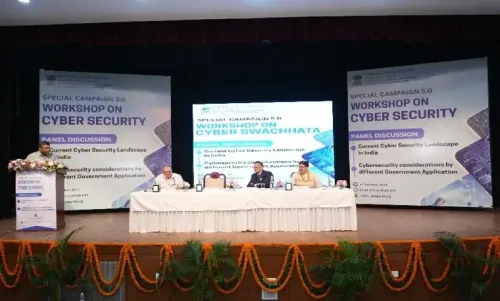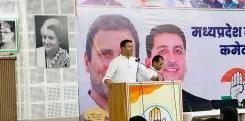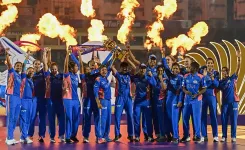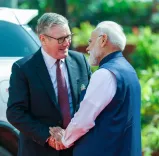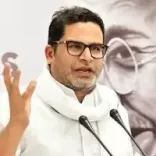Who was Jaipal Singh Munda, the first Adivasi icon of Indian Hockey?
Synopsis
Key Takeaways
- Jaipal Singh Munda was the first Adivasi icon of Indian hockey.
- He led the Indian team to its inaugural Olympic gold medal in 1928.
- His early life was marked by struggles and triumphs.
- Munda was a significant advocate for tribal rights post-Independence.
- He founded the Mohun Bagan hockey club in 1929.
New Delhi, Oct 9 (NationPress) The remarkable Jaipal Singh Munda, originally named Pramod Pahan, hailed from a Munda (tribal) family in Pahan Toli Village, located in the Kunti sub-division of Ranchi district from the former Bengal Presidency. He emerged as the first genuine hero of Indian hockey, leading his team to victory for the inaugural Olympic gold medal in 1928. The Marang Gomke Hockey Stadium in Ranchi, Jharkhand, stands as a fitting homage to this legendary figure.
While studying at Oxford University in England, he was selected to join the Indian squad set to depart from India. After participating in a few matches, he parted ways with the team and did not represent the country thereafter.
Jaipal Singh Munda faced significant struggles in his early life, herding cows until a missionary facilitated his admission to St Paul’s School in Ranchi. This opportunity marked a transformative phase in his life, where he excelled academically and in sports, especially hockey. Like many defenders from Odisha and Jharkhand today, Jaipal was a full-back who consistently left his educators impressed with his defensive skills.
His prowess on the field, combined with his extensive knowledge of the sport, made him a natural choice to lead the Indian team at the Olympic Games in Amsterdam. Leading up to their Olympic triumph, he played a crucial role in organizing tours across India for college and university hockey teams, significantly contributing to the establishment of the Indian Hockey Federation (IHF), founded in 1925.
At the Olympics, India had a stellar start, achieving decisive victories in their first three matches and ultimately defeating the host nation, Netherlands, 3-0 in the final to claim their first Olympic title.
Munda evolved into a transformative figure in India’s narrative, becoming a passionate advocate for tribal rights during his formative years after Independence.
Jaipal Singh was instrumental in preparing the Indian team for the Amsterdam Olympics in 1928, as they toured England for matches.
In his autobiography, 'Goal', hockey legend Dhyan Chand recounted how Jaipal Singh aided the team in acclimatizing to English conditions and understanding their opponents.
“Jaipal Singh’s profound understanding of English players and ground conditions greatly benefited us. He was incredibly popular in the English hockey community and made a significant impact in social circles,” Dhyan Chand mentioned.
Dhyan Chand also highlighted that Jaipal Singh departed the team and Amsterdam after a few games due to disagreements with the British officers managing the Indian team at that time.
“I believe Jaipal Singh often flew from London to Amsterdam, returning after the match. The reasons behind his sudden departure remain a mystery to me,” wrote the Wizard of Hockey.
“From early in our stay in England, I sensed a conflict among the management. Even though Rosser was our manager, two former Indian Army officers, Major Ricketts and Colonel Bruce Turnbull, had significant influence over him. I could tell that Mr. Rosser was not entirely satisfied.”
“Whether this conflict influenced Jaipal Singh’s decision not to continue as captain is a matter for others to consider. There were whispers of communal and racial tensions. Regardless of the cause, it’s undeniable that Jaipal Singh, a prominent full-back from Oxford with a stellar reputation in hockey, could not lead us until the end,” Dhyan Chand elaborated.
Though he never returned to play for India after the 1928 victory, Jaipal Singh Munda founded the Mohun Bagan hockey club in 1929 and guided the team to numerous accolades. He also served as the secretary of the Bengal Hockey Association.

